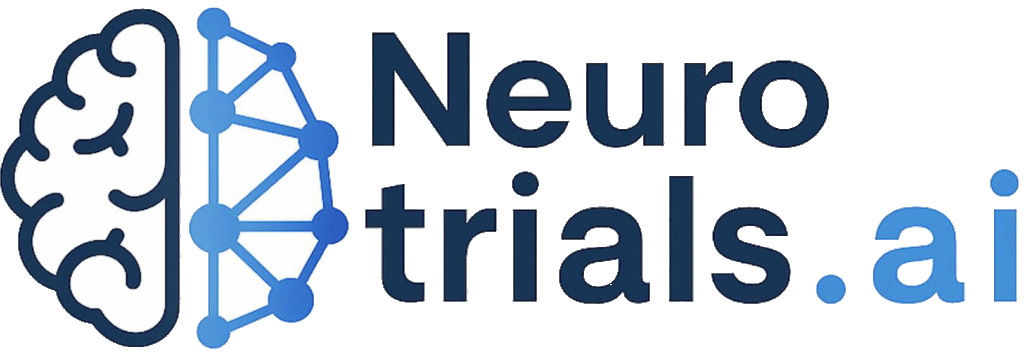NeuroTrials.ai

Why NeuroTrials.ai Exists
Medicine today is grounded in clinical evidence—and that evidence is expanding at an unprecedented pace. Every day, thousands of clinical trials are conducted across the world, adding to the growing body of knowledge that shapes patient care. But with this constant influx, staying on top of the most relevant, practice-changing trials has become a real challenge for clinicians, researchers, and trainees alike.
That’s why we created NeuroTrials.ai—a centralized, evolving platform designed to help you easily access and navigate key neurology-related trials. Our goal is simple: to make it easier for you to find the evidence that matters, support informed clinical decisions, and ultimately improve patient outcomes.
We hope you find NeuroTrials.ai helpful and easy to use. It’s still a work in progress, with more trials and concise summaries being added regularly. We’re excited about what’s ahead—and grateful to have you along for the journey.
NeurologyResident.com
The site was launched in 2018 as a personal tool during my own training. I’ve always found it helpful to take structured notes while studying, and over time, these notes became a valuable resource for organizing complex neurology topics.
After completing residency, I realized that every new resident essentially restarts the same learning process from scratch. That realization inspired me to make my study notes publicly available—so that others could benefit from the work already done. The site now hosts a growing collection of note templates, basic science material, and clinical summaries aimed at helping neurology residents prepare for the RITE exam and board certification.

Question Bank
In addition to NeuroTrials.ai and NeurologyResident.com, We’ve also built a dedicated Question Bank site to support neurologists and residents preparing for the RITE and board exams. This standalone platform currently offers over 700 curated questions, each with in-depth explanations across various neurology domains—from clinical neurology and neuroanatomy to basic neuroscience. The goal is to provide a structured, high-yield resource that helps trainees test their understanding, reinforce critical concepts, and prepare with confidence.

